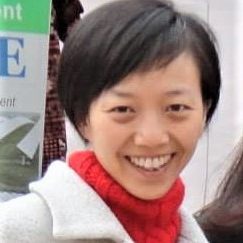The 9th CEMEREM Summer School on Circular Economy was successfully held in Germany from 21st to 25th July 2025, bringing together 14 students and 4 staff members from Taita Taveta University (TTU). Through expert lectures, interactive workshops, and hands-on excursions, participants deepened their knowledge and strengthened their commitment to applying circular economy principles in practice.
The Summer School opened with a welcome address by Prof. Ulrike Feistel, CEMEREM Project Leader. The academic program featured high-level lectures from industry experts and university researchers. Key topics included:
- “Textile Recycling” – Prof. Ingo Gestring
- “Circularity in Packaging and Packaging Waste Regulation”, “EU Deforestation-free Products Regulation” – Peter Görlitz, Sustainability Manager at Snoco
These sessions provided a solid foundation for understanding the importance and application of circular economy concepts.
Participants also engaged in practical learning activities. A visit to a collection and recycling centre in Dresden and the Institute of Waste Management and Circular Economy at TU Dresden offered valuable insights into real-world waste management processes in Germany. During the training day, attendees explored the concept of Life Cycle Assessment (LCA) and learned to work with LCA tools.
The “Paper Recycling” workshop at the Institute of Natural Materials Engineering, TU Dresden provided hands-on training in recycling waste paper packaging and demonstrated how agricultural residues can be transformed into compostable packaging shells from renewable raw materials.
An excursion to Welzow focused on coal mine recultivation. Participants observed large-scale closed-loop restoration processes, where post-mining landscapes are transformed into farmland, forests, and wetlands.
In Freiberg, the group visited Freiberger Compound Materials GmbH (FCM), a global leader in compound semiconductor substrates for microelectronics and optoelectronics, and the Biogas Laboratory of TU Bergakademie Freiberg. These visits showcased innovative recycling techniques and sustainable technologies.
The workshop “From the Salt of Life” offered a thought-provoking exploration of raw materials—where they come from, how they are used, and their environmental impacts. The interactive exhibition sparked discussion on global and personal resource consumption, raw material scarcity, and individual carbon footprints.
The Summer School concluded with a final interactive workshop, where participants presented their learning outcomes and shared constructive feedback. Inspired by the week’s activities, many expressed their intention to initiate research projects and community activities related to waste management and sustainable development in Kenya.






You must be logged in to rate posts.
3 Comments
Leave a Reply
You must be logged in to post a comment.




Great experience for CEMEREM students, great initiative!!!
Wunderbar! It’s inspiring to document that CEMEREM has registered a solid streak of success milestones in its decade as a project – what I call The CEMEREM Decade of Delivery. CEMEREM is so far the only engineering-oriented Germany-supported Centre of African Excellence. Unequivocal. In these ten eventful years, I can parade the following milestones of the DAAD-supported CEMEREM Project, which also fully sponsored my doctoral studies in Germany: 9 Summer Schools, 7 co-hosted in Germany by HTW Dresden and TU Bergakademie Freiberg, two hosted by Taita Taveta University in Kenya; 5 Biennial International Conferences on Mining and Natural Resource Management, the next one to be hosted by Taita Taveta University from 30th September to 1st October 2025; staff exchanges across Africa and between Kenya and Germany; research stays in Germany for postgraduate students and academic staff; scholarships for MSc, MBA, and PhD studies for East Africans, with CEMEREM graduates already impacting different sectors globally through practice-oriented education and training in mining engineering, environmental engineering, process engineering, and natural resource management; equipment support, the first batch being modern, industry-grade survey instruments that make the survey lab of Taita Taveta University Kenya’s go-to lab for surveying practicals; community-facing projects in energy and water services. Stating that Germany has got the jig-saw puzzle right in handling bilateral cooperation through empowering and win-win educational and research programmes is a good conclusion, but even much better and spot on is the resolve by African governments to learn from this established pedigree and replicate the model to develop regions by building human capital for the knowledge economy. Alles klar! Mbele iko sawa!
Great experience